
2020 Appointment to the Advisory Council for Nature Conservation of the Ministry of Environment, Energy, Food and Forestry Rhineland-Palatinate
2019 Call to the University of Kassel (not accepted)
List of publications before starting work at the Umwelt-Campus
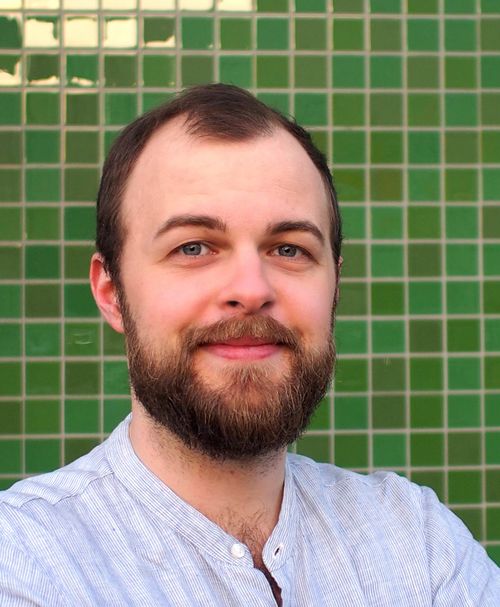
As a research assistant, I am primarily concerned with issues relating to the renaturation of watercourses. I am personally interested in defining the framework conditions under which watercourse restoration can succeed in the best possible way. After more than two decades of intensive efforts, this is important in order to maintain society's willingness to support these measures to protect nature and biodiversity in particular.
For this reason, the issue of the sustainability of renaturation should also be viewed from a social perspective. With this in mind, as part of the BiodivERsA project COSAR, I am looking at the social perception of river restoration. We measure this based on the ecosystem services derived from social media postings. I am also involved in other projects of the working group, mainly dealing with data analysis.
In my doctoral thesis at the University of Duisburg-Essen, I analyzed the influence of woody buffers on the macrozoobenthos. I was initially able to establish that even with precise knowledge of the riparian trees and shrubs derived from aerial photographs, influences from the catchment area override those of the immediate watercourse environment. However, when comparing individual types of catchment areas in detail, one recognizes a sometimes strong effect of the woody buffer, which can sometimes cause up to two status classes of ecological status, which is an important finding for watercourse management.
E-mail: m.palt[at]umwelt-campus.de
Telephone number: +49 6782 17-1880
RG: researchgate.net/profile/Martin-Palt
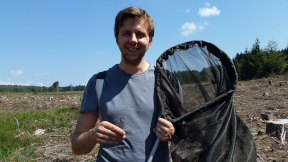
As a scientific assistant in the ecology lab I work on a diverse set of topics and projects in science and education. The focus of my work lies on the analysis of ecological data from streams in and around the Nationalpark Hunsrück Hochwald and determination of aquatic invertebrates.
At the moment I am involved with the following topics and projects: long term ecological monitoring of streams in the national park, ecological monitoring of the Steinbach Reservoir, ecological assessment of stream restorations and “BlauPlus” projects, the school project “Our Common Future” of the Robert Bosch Foundation as well as the creation of information panels at a restoration site.
For my Phd at the University of Koblenz-Landau I investigate distribution patterns of the killer shrimp (Dikerogammarus villosus). I am particularly interested in the effect of environmental factors on biotic interactions and the formation of stable distribution barriers for D. villosus.
Projects: NATIONAL PARK MONITORING Monitoring Steinbach reservoir Our Common Future
Contact: w.remmers(at)umwelt-campus.de Phone: +49 (0)6782 17 1958
During my PhD thesis, I will be able to develop strong knowledge on the life-history trait of Allis shad population, Alosa alosa, in the Rhine and carry out an implementation of successful monitoring for Allis shad spawners. For this purpose, fishes are collected along the Rhine and its tributaries. Using the microchemistry, otoliths (ear stones of fish) of juveniles and spawners are used to understand the migration pathway during the downstream migration as well as to know which fishes resulted from a natural reproduction in the Rhine or which come from the reintroduction program for the Allis shad since 2007 (i.e., from the Gironde system, South-West of France). Coupling the daily age with otoliths microchemical composition (Sr isotope, Sr:Ca, Ba:Ca and Mn:Ca) and water composition, I will deduce most precisely the migration pathway of each fish.
Project: Reintroduction of Allish Shad in the river Rhine
Contact: e.boussinet(at)umwelt-campus.de, phone: +49 678217-1983
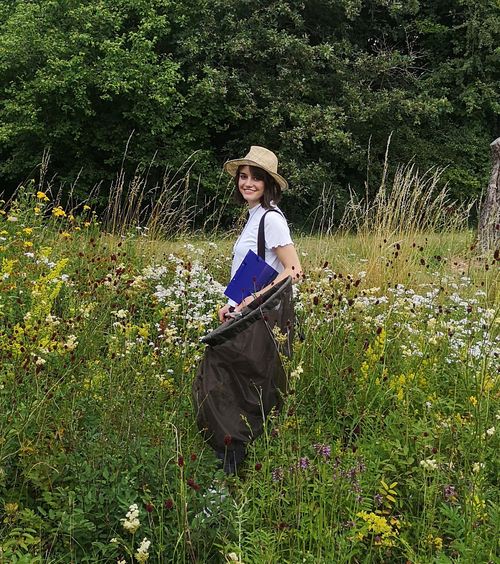
My PhD thesis examines the effects of short rotation coppice (SRC) on butterfly diversity in the agricultural landscape. Short-rotation plantations are fast-growing tree species that can be cultivated on agricultural land (no forest in the sense of the BWaldG), such as poplars, willows or robinias.
In the first part of my PhD thesis, I explore how butterfly diversity depends on the age of a short rotation plantation and how butterfly caterpillars are distributed over the different levels of the leaf canopy (succession ecology). From the statements on the preferred growth stages of butterflies and the height-zone differentiation of the caterpillar community, biodiversity-optimized rotation phases and harvesting methods can be determined.
The second part of the PhD thesis aims at the further development of the SRC to a possibly effective nature conservation measure. It aims to enable statements, which locations SRC should be given priority for establishing SRC in the agricultural landscape, so that they can develop a possible advantage to the butterfly diversity.
The third part of the PhD thesis is dealing with the economic profitability of a biodiversity optimized SRC. New management tools, such as the SRC, have to be implemented quickly by farmers and have to be compared with other crops. If the economic profitability is not given or turns out to be unattractive compared to alternative land use alternatives, the dissertation also aims at the identification of possible funding needs by politics.
Contact: l.hoffmann(at)umwelt-campus.de, telephone: 06782 17-1934
Projects: Nationalparkmonitoring LIFEPLAN
Contact: c.mueller(at)umwelt-campus.de
As a scientific assistant I mainly deal with the evaluation and determination of macrozoobenthos samples. I am responsible for the ecological long-term monitoring in the national park and in the Steinbachtalsperre in Kempfeld. I am also involved in the scientific monitoring of renaturation measures on water columns in cooperation with the Ministry for Climate Protection, Environment, Energy and Mobility. Furthermore, I am investigating the occurence of noble crayfish populations, especially in the Steinbachtalsperre.
Additionally I supervise the „WasserWissensExkursion“ at the „WasserWissensWerk“. Here I give people a better understanding of the habitat river and the importance of the stream organisms.
I also like to help my working group with various ecological projects.
Projects: National Park Monitoring, Dam Monitoring, Crayfish Project
Kontakt: i.janke(at)umwelt-campus.de
Phone number: +49 (0)678217-1940
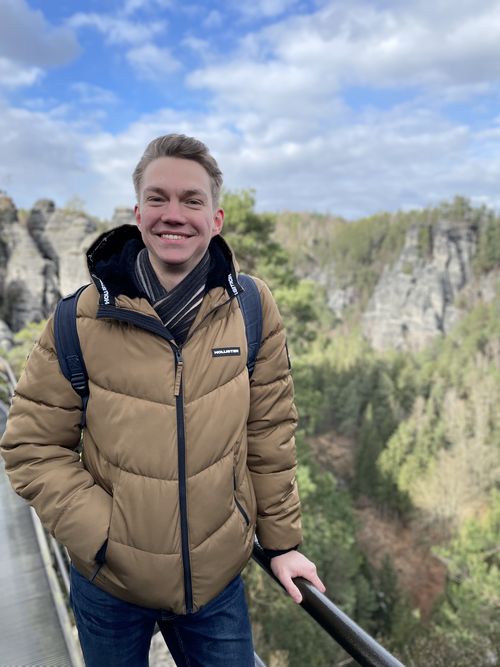
I am a project manager in the "Eel Monitoring" research project, which is investigating the feasibility and economic viability of an AI-supported system for automatic eel detection in flowing waters. In cooperation with the hydropower plant operator and sponsor RWE Generation SE, sonar systems will be installed at selected locations on the Moselle to make various objects and structures - including fish - visible underwater. An AI can then analyze the video material and differentiate between flotsam and fish (e.g. eel). Even though hydropower is considered green energy, the impact on the surrounding ecosystem is enormous. For river creatures in particular, such as the endangered European eel, such structures often represent obstacles that are difficult to overcome and lead to a high mortality rate. Initially, the system developed will be used to validate current eel migration forecasting models; in the future, AI-supported control of the hydropower plants is conceivable. This would allow the turbines to be switched off at the peak of the eel migration in autumn to ensure the safe transit of the eels.
I am currently completing my Master's degree in Applied Computer Science at the Environmental Campus.
My master's thesis will also deal with the topic of AI-supported fish detection using sonar systems, in line with the research project.
I am particularly interested in the use of modern technologies such as AI for the purposes of environmental and species protection, which is why I decided to work at the intersection of computer science and biology. I am also a very nature-loving person in my private life and enjoy every field assignment as a change from office work.
Email: l.seemann(at)umwelt-campus.de
Phone number: +49 6782 17-1531
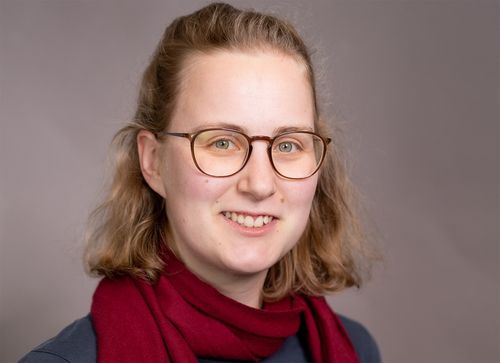
As a research assistant, I work on the MonAhr project.
We are monitoring the restoration of the Ahr river from an ecological perspective following the extreme floods in 2021.
In this context, my doctoral thesis focuses on the recolonisation of the Ahr by macrozoobenthos (MZB) and fish.
I aim to identify refugial areas from which the species spread again after a population collapse.
I am also interested in the role of mesohabitats in the recolonisation process.
Based on the diversity of the species community and the number of individuals of MZB and fish, I plan to draw conclusions about the water quality.
In a final step, the mesohabitat composition will be scrutinised and the effects of changes to this on the species communities and the ecological assessment will be discussed.

As a scientific assistant, I support various projects, mainly on the River Ahr (MonAHR), the crayfish monitoring, long-term monitoring within the Hunsrück-Hochwald National Park and regular water ecology studies at the Steinbach Reservoir. I am involved in sampling and subsequently analysing and identifying macrozoobenthos species.
Hannah Holzer
Ana Sofia Sommer Lopez
Anna Elisa Rivera Schulz
Katja Burkhard
Karolína Kalinová
Christopher Galle
Vanessa Schuster
Chris Seibüchler
You are leaving the official website of Trier University of Applied Sciences